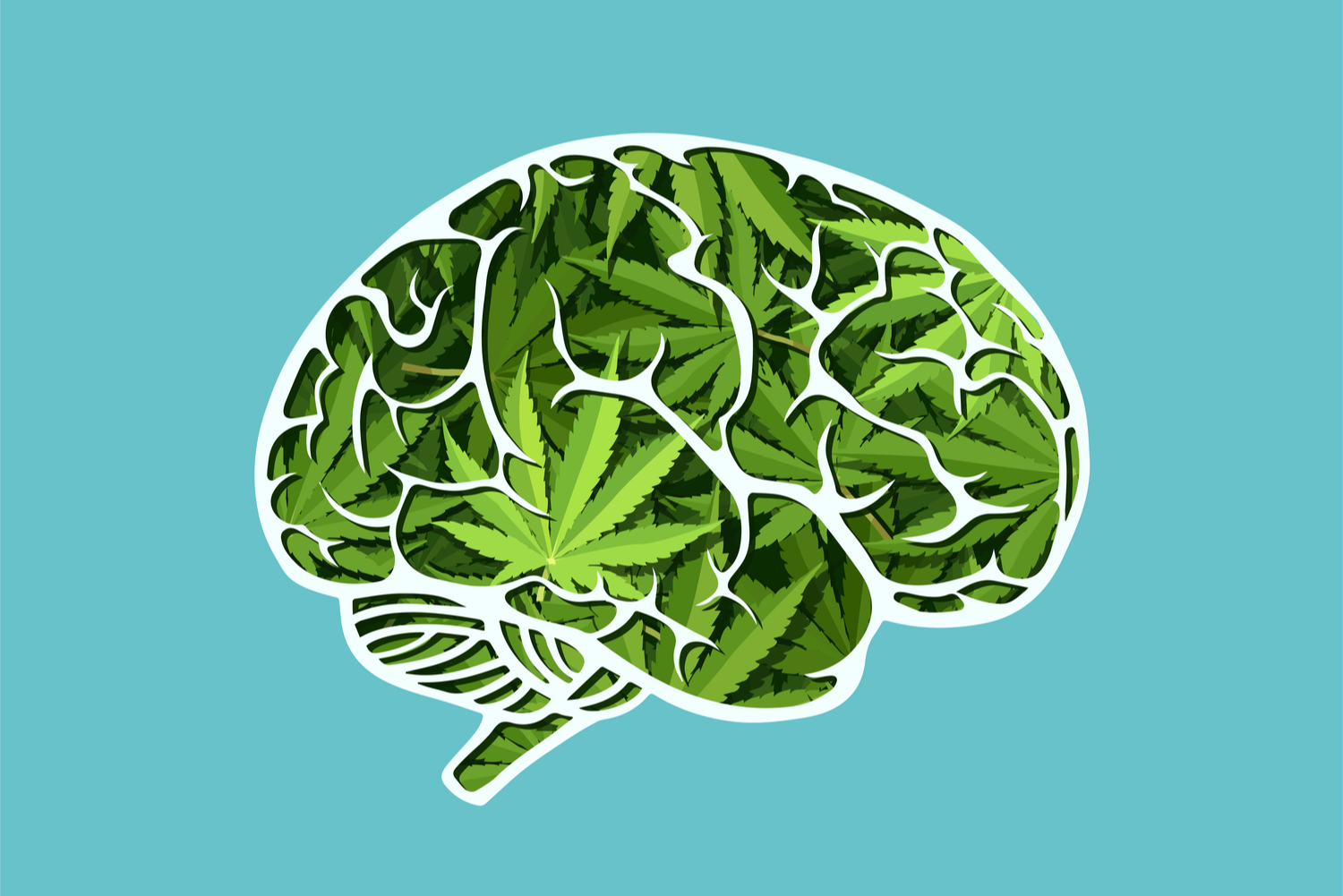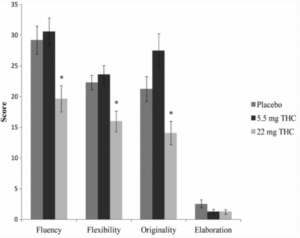
The cannabis community is nothing short of creative. From cleverly themed cannabis products to brilliant hand-blown bongs and a plethora of inspired music, there seems to be a culturally held belief that weed and creativity are interconnected. Even the most outspoken cannabis activists have the artistic arsenal to back their claims. Bob Marley, Steve Jobs, and John Lennon are just a few of the people who’ve credited their creative prowess to cannabis.
The overwhelming amount of anecdotal evidence has led researchers to question, can cannabis boost creativity?
Well, it’s complicated.
To simplify it, like any psychoactive drug, it depends. One study found that low doses of THC help, but higher doses inhibit. Additionally, for people who are already deemed creative, the effects won’t be significant. On the other hand, research also shows that there are more creatively advanced people within the population of cannabis consumers.
The conundrum in measuring this is that the concept of creativity is tricky to define. Personality traits (and how they are perceived) are subjective, similar to beauty or humor. Creativity is inherently unique, elusive, and intangible. Because of this, there is no agreement on one particular way to measure or assess it. The Catch 22 is that to scientifically measure something; it needs to be defined.
Pinpointing Creativity
While the definition of creativity is not universal, scientists can see what parts of our brain are activated when doing something artistic. What they’ve found is that it’s associated with the brain’s frontal lobe. This part of the brain controls higher cognitive functions such as emotions, problem-solving, social interaction, impulse control, and more. When we consume cannabis, we increase the cerebral blood flow (CBF) to this area, making it more active. With more activity, there is higher creative output.
Scientists measure this output as “divergent thinking.” This is the type of free-flowing, non-linear thinking where one explores as many solutions to a problem as possible. In other words, divergent thinking is brainstorming.
When used in research, divergent thinking is measured by giving participants an item and asking them to think of as many uses for that thing. For example, a book can be used, of course, to read, but also as a doorstop, stool, paperweight, etc. From there, the ideas are measured by fluency, flexibility, originality, and elaboration. Fluency refers to the number of responses, while flexibility refers to the response’s variation. Originality is measured by how unique the responses are, while elaboration is measured by the reason for them.
These categories are intended to get the fullest and most well-rounded measure of creativity. For example, one person could have a lot of flexibility and develop many ways to say the same thing but have no variation between their ideas. Similarly, someone can have high flexibility but no originality. Think Family Feud – most people can brainstorm the same answers to a topic.
Dosage is key
One study using this method found that in low doses (5.5 mg), cannabis significantly improved originality while also slightly improving fluency and flexibility. The exception was elaboration, which was low across the board – even in the placebo group.
In high doses (22 mg), the study found that THC can hinder. Participants given the high dose performed worse across all four categories than the placebo and low-dose groups.
Despite these findings, the researchers acknowledge the limitations of this study, noting the small sample size (60 people), genetic predispositions, and dosing.
Other findings
While divergent thinking is undoubtedly an aspect of creativity, there is inconclusive evidence to say it fully encompasses it. Other research points to dopamine, the “feel-good” chemical in your brain, being a driver for creativity. When we engage in creative activities such as writing, painting, or making music, dopamine is released. Furthermore, when we consume cannabis, our brain is also stimulated to release dopamine. This also partially plays into Why Marijuana Gives You The Munchies.
In the end, do what works for you.
Ultimately, science doesn’t have any definitive conclusions on this abstract matter. Not only is creativity in itself elusive and hard to pinpoint, but humans are innately different. Our experiences with anything psychoactive will vary significantly from person to person. That’s why we have 20+ different medications that treat the same problem.
So, can cannabis boost creativity?
We say find what works for you. If you’re interested in the possibility, try a low dose and see how you feel. From there, you can work your way up. Always listen to your body and smoke responsibly.
Have any questions? Feel free to contact us online. You can also check out our menu online for flower, concentrates, edibles, and more.
